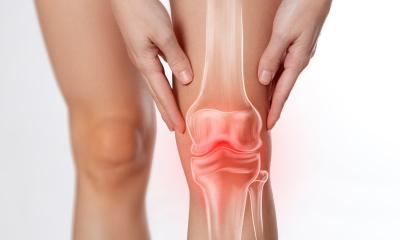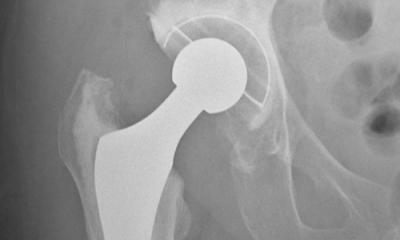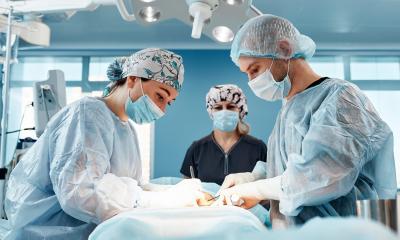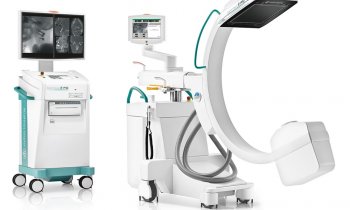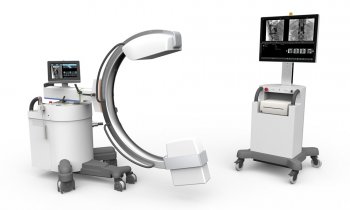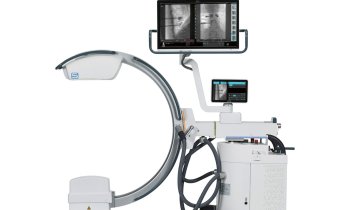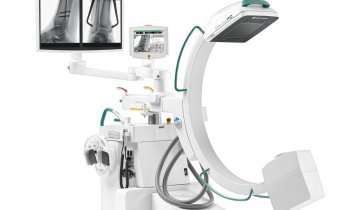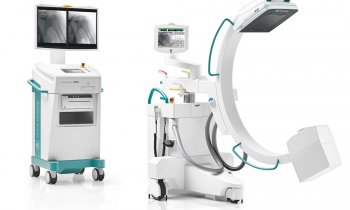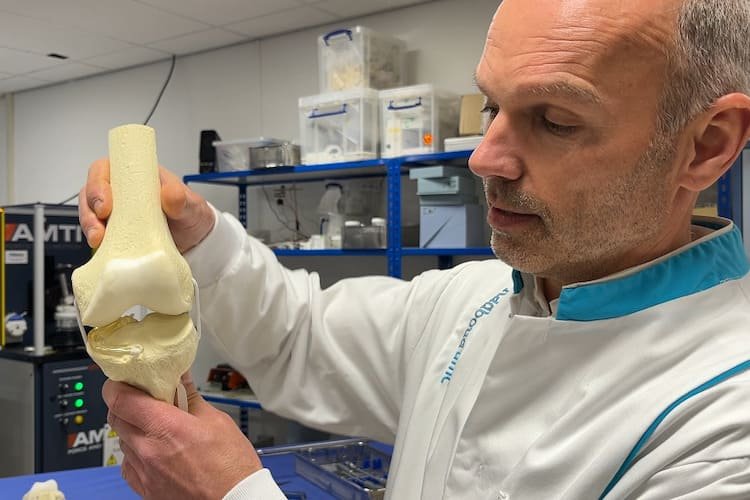
Image source: Radboudumc
News • Potential for patients with knee pain
Artificial lateral meniscus makes clinical debut
Radboudumc and Atro Medical are investigating the use of an artificial lateral meniscus. Following the success of the medial meniscus, research on the lateral meniscus has now started.
This clinical study aims to assess the effectiveness and safety of the meniscus prosthesis in patients. The first patients have already undergone surgery and begun their rehabilitation process.
In the Netherlands, many people suffer from chronic knee pain, sometimes due to the removal of their meniscus. The artificial meniscus is designed for individuals who have previously had part or all of their meniscus removed (meniscectomy). Approximately one in five patients experiences chronic knee pain after this procedure, with limited surgical options available for pain relief. The artificial meniscus may offer a solution. After the positive outcomes of the medial meniscus (inner meniscus), an artificial meniscus for the lateral meniscus has now been developed.

Image source: Radboudumc
This study is led by Sebastiaan van de Groes, orthopedic surgeon at Radboudumc: "At Radboudumc, we strive to make an impact on major healthcare challenges," he says. "Pain during movement is a key example, significantly affecting quality of life. I am therefore thrilled that this innovation offers a potential opportunity to improve patients' quality of life."
The full replacement of the lateral meniscus with an artificial meniscus is unique. The lateral side of the knee is highly mobile and plays a crucial role in stability, making meniscus replacement particularly challenging. While positive results have been achieved with an artificial medial meniscus, there was previously no replacement option for the lateral meniscus. This new development offers a potential solution.
The artificial meniscus features a unique design and is made of an exceptionally flexible material: polycarbonate-urethane. This material is safe for implantation in the human body, is non-biodegradable, and can be made extremely smooth. This ensures minimal friction with cartilage, making it highly suitable as a shock absorber between the upper and lower knee cartilage.
Before starting the clinical study, researchers at the Orthopedic Research Laboratory (ORL) at Radboudumc tested the safety of the meniscus. The laboratory has advanced facilities to simulate knee movement and load, subjecting the prosthesis to an "IKEA-style" endurance test. The results were positive, allowing the artificial meniscus to proceed to clinical trials.
Radboudumc and Atro Medical have collaborated for years. In 2017, Atro Medical was founded as an orthopedic spin-off from Radboudumc, introducing its first product: the medial Artimis meniscus prosthesis. Thanks to significant EU funding and continued collaboration with Radboudumc, a lateral (outer) artificial meniscus is now available for research purposes.
Within the EARTH study, patients with chronic knee pain are undergoing surgery at Radboudumc. Not all patients qualify for participation. Those selected will follow a rehabilitation program under the supervision of their own physiotherapist. They will be monitored for two years to evaluate the effectiveness of the artificial meniscus. Currently, the meniscus prosthesis is only available as part of this study, with a total of 16 patients eligible to participate.
Source: Radboudumc
01.04.2025



